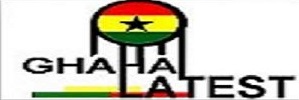 A safety expert, Nana Yaw Akwada, says last Saturday’s tragic accident at Newmont Ghana’s Ahafo mine, calls for the immediate institution of a comprehensive public safety policy to ensure workplace safety.
A safety expert, Nana Yaw Akwada, says last Saturday’s tragic accident at Newmont Ghana’s Ahafo mine, calls for the immediate institution of a comprehensive public safety policy to ensure workplace safety.
The Executive Director at the Bureau of Public Safety says the draft Occupational Safety and Health Policy, has been collecting dust on the shelves since it was put together and submitted to Cabinet in 2015.
Commenting on the Super Morning Show on Joy FM Monday, Nana Yaw Akwada said the time is ripe for the country to have a “tightlipped” policy that will compel companies with more than 25 staff to engage at least one competent health and safety person.
His comments follow the collapse of a reclaim tunnel at the Ahafo Mines of Newmont Ghana leading to the death six contract staff on Sunday.
“All these happen because we do not have a tight-lipped policy and an adjoining bill that is supposed to regulate the industry,” he told the host, Daniel Dadzie.
The policy will also compel investigative authorities to make public, results of their findings instead of a situation where “they will just scoop one or two lines out of the recommendations and just give it to some ‘troublesome journalist’ who wants to understand what really happened”, Nana Akwada said.
“If we have a policy that is supposed to regulate the industry it will bring together the Inspectorate Division of the Minerals Commission, Factories Inspectorate Department, and the Plant Protection Services Department (PPSD).
“All the various splinter bodies that are supposed to have regulatory oversight on various industries are going to be brought under one umbrella and then the policy is going to spell out how some of these things should be done,” he explained.
The existence of Occupational Safety and Health Policy Mr Akwada noted will ensure recommendations of investigations conducted into workplace accidents as was the case at Newmont, will be binding on the sector industry where the accident happened.
He advised employees to demand health and safety from their employers because it is the right to demand that they work under sanitised and healthy conditions.
“When all these things are not apt, you have the right to remove yourself from danger”.







